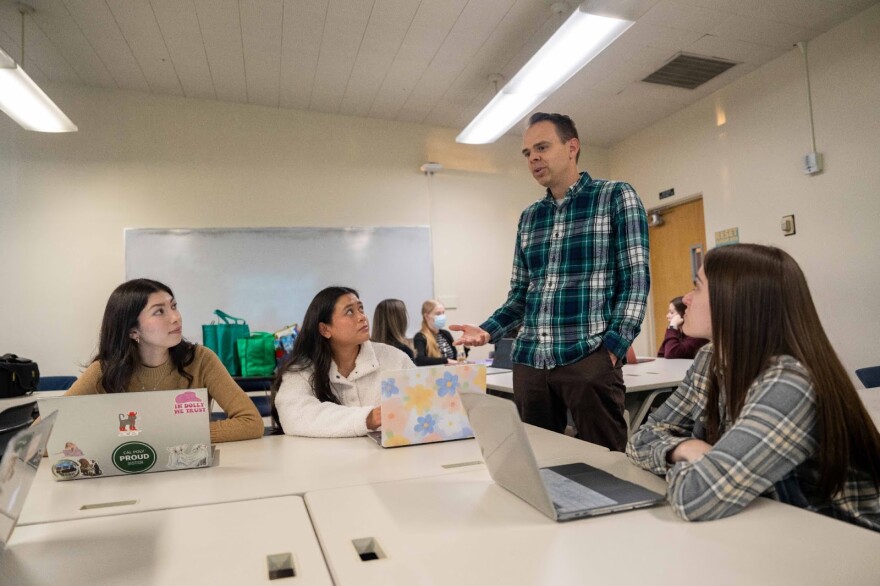Stockton’s University of the Pacific has launched a new master’s program to help address the region’s ongoing shortage of mental health professionals.
In fall 2024 the private university’s Benerd College, which specializes in education programs and degrees, will accept students into its new Master of Arts in Counseling Psychology major focused on marriage and family counseling. About 15 to 20 students are expected to make up the inaugural class.
Mental health professionals remain in short supply across the state, a problem that has only gotten worse since the pandemic spurred an increase in demand for behavioral health services.
San Joaquin County, where Pacific is located, has the state’s lowest ratio of licensed psychiatrists and psychologists, according to a report from the California Health Care Foundation. The region has six psychiatrists and 16 psychologists to every 100,000 people, compared with the state average of 12 and 44, respectively.
“We’ve seen an increased demand in mental health needs and increased interest in people going into the mental health field. So it seemed like a good time to start,” said Pacific associate professor Justin Low, who is leading the new master’s program.
The two-year degree will focus on marriage and family counseling in hopes of producing more licensed therapists to provide mental health services to individuals, couples, families and youth in the Valley.
The 60-unit program is open to people with a bachelor's degree interested in becoming a therapist. A specific undergraduate degree in psychology is not required. Tuition is about $34,000 a year and the deadline to register for fall semester is June 1. After graduating, students must complete 3,000 hours of supervised experience to be fully licensed.
California State University, Stanislaus in Turlock has a similar Master of Arts in Psychology program, which also requires the 3,000 hours of post-graduate experience to be licensed. The University of California, Merced has a Psychological Sciences M.A. degree available only as part of its larger Ph.D program.
Pacific adjunct faculty member Andra Zastrow, who has worked in marriage and family counseling in Stockton for the past 20 years, said in a release that she hopes the new program will help to bolster the struggling mental health system in the region.
“This is a very important step for getting access to care because we have such a lack of resources in Stockton,” she said. “Getting an appointment can take up to a month. Beyond that, nobody is taking insurance. Many people must pay out of pocket.”
Graduates through Pacific’s existing mental-health professional related fields (including its licensed clinical professional counselor major and psychology doctorate) are in high demand. Starting salaries for licensed therapists begin at around $90,000, Low said.
“I regularly have schools and other institutions and placement centers that contact me asking for graduates from the program,” Low said. “The demand is there.”
University officials said the new major is part of Benerd College’s growth into more social education.
“Leadership, education and behavioral and mental health are three areas of focus within our degree programs,” said Benerd College Dean Patricia Campbell in a statement about the new major. “We are really expanding.”
CHCF, whose report was referenced in this story, is a funder of CVJC’s Health Equity Lab.
Marijke Rowland is the senior health equity reporter for the Central Valley Journalism Collaborative, a nonprofit newsroom based in Merced, in collaboration with the California Health Care Foundation (CHCF).

